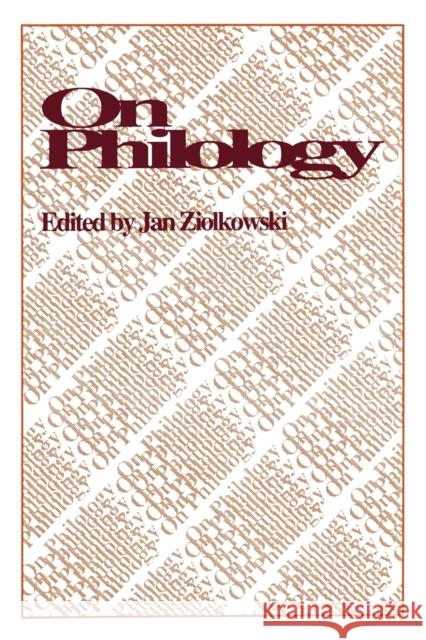On Philology » książka
On Philology
ISBN-13: 9780271025896 / Angielski / Miękka / 1990 / 88 str.
As the Byzantinist Ihor Sevčenko once observed, "Philology is constituting and interpreting the texts that have come down to us. It is a narrow thing, but without it nothing else is possible." This definition accords with Saussure's succinct description of the mission of philology: "especially to correct, interpret, and comment upon the texts." Philology is not just a grand etymological or lexicographical enterprise. It also involves restoring to works as much of their original life and nuances as we can manage. To read the written records of bygone civilizations correctly requires knowledge of cultural history in a broad sense: of folklore, legends, laws, and customs. Philology also encompasses the forms in which texts express their messages, and thus it includes stylistics, metrics, and similar studies.On Philology brings together the papers delivered at a 1988 conference at Harvard University's Center for Literary and Cultural Studies. The topic "What is Philology?" drew an interdisciplinary audience whose main fields of research ran the gamut from ancient Indo-European languages to African-American literature, signaling a certain sense of urgency about a seemingly narrow subject.These papers reveal that the role of philology is more important than ever. At a time when literature in printed form has taken a back seat to television, film, and music, it is crucial that scholars be able to articulate why students and colleagues should care about the books with which they work. Just as knowledge will be lost if philological standards decline, so too will fields of study die if their representatives cannot find meaning for today's readers.On Philology will be of interest not only to students of philology but also to anyone working in the fields of hermeneutics, literature, and communication.











